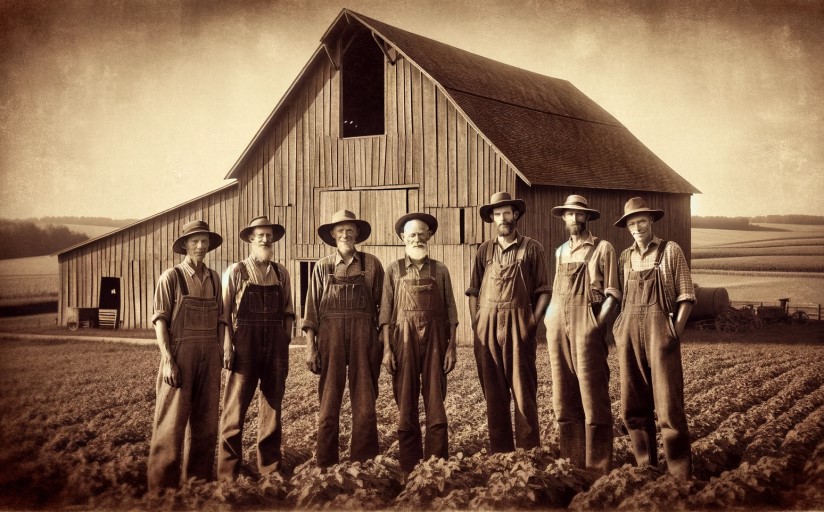Just like a bad stand-in can ruin a scene in a blockbuster film, an unclear antecedent can ruin a sentence. Confused? Let me explain.
Being a movie star involves a lot of downtime. (At least that’s what Idris Elba tells me on our monthly Zoom call.) You’re stuck spending hours in the makeup chair or resisting the craft services table while you wait for your call time.
You don’t have to waste time with scene set-up, though. That’s your stand-in’s job. While Idris perfects his DJ skills, his stand-in helps the crew perfect a scene’s lighting and blocking. All of this convenience rests on a simple premise: Idris Elba’s stand-in needs to physically match Idris Elba. When a stand-in and a star aren’t in sync, the lighting director can’t set the scene. Similarly, when a pronoun and its antecedent aren’t clear, your readers can’t understand what you’re talking about. And, much like “Cats,” nobody wants that.
Sorry, Idris.
Unclear Antecedent Definition
In a sentence, the antecedent is the noun that’s represented by a specific pronoun. An unclear antecedent is what happens when you can’t tell which noun a pronoun is supposed to stand in for.

Um, Remind Me What Pronouns Do Again?
Pronouns stand in for nouns so that our writing doesn’t sound repetitive and robotic. For example, instead of writing something like this:
- Brad asked me to hold Brad’s funnel cake while Brad rides the Barf-O-Tron 5000 again.
You can swap in some pronouns like this:
- Brad asked me to hold his funnel cake while he rides the Barf-O-Tron 5000 for the third time in a row.
See? Much better. And in this powder sugar-covered example, the antecedent is Brad. This is a clear antecedent because there’s no question who the funnel cake belongs to or who’s going to ride the Barf-O-Tron again. It’s Brad. And he’s probably going to regret it.
What Is an Unclear Antecedent?
If you write a sentence with an unclear antecedent, the reader can’t tell what noun a given pronoun is standing in for. Predictably, this causes confusion. Check it out:
- Neither Brad nor Pablo have ever thrown up after riding the Barf-O-Tron, or at least that’s what he told me.
In this case, the antecedent is unclear because we can’t be totally sure whether that “he” is a stand-in for Brad or a stand-in for Pablo. Maybe Brad said it before scampering back into line for the ride. Maybe Pablo said it because, as Brad’s loyal wingman, he’s trying to impress the speaker in the sentence. Either way, we can’t tell because the antecedent is unclear.
Unclear Antecedent Examples
There are a lot of things that can go wrong between an antecedent and its pronoun, and if you’re going to grow as a writer, you need to know how to find issues in your work. Lace up your grammar boots, and let’s check out the two most common causes of antecedent confusion.
1. There Are Too Many Possible Antecedents
More often than not, an unclear antecedent is the result of there being more than one possible antecedent for a pronoun (or series of pronouns). Our funnel cake example above was an example of that. Let’s refresh:
- Neither Brad nor Pablo have ever thrown up after riding the Barf-O-Tron, or at least that’s what he told me.
Because “he” could reasonably mean Brad or Pablo, the pronoun’s antecedent isn’t clear. Let’s check a few more examples of unclear antecedents — and how to clear things up.
Example 1
- Unclear: My boss gave the angry customer her credit card.
- Clear: My boss gave the angry customer’s credit card back to her.

Example 2
- Unclear: Zack and his dad watched his brand-new kite drift off across the river toward New Jersey.
- Clear: Zack and his dad watched Zack’s brand-new kite drift off across the river toward New Jersey.
Example 3
- Unclear: We used to hide a spare key under the Christmas wreath, but it was stolen.
- Clear: We used to hide a spare key under the Christmas wreath, but the wreath was stolen.
It’s not just personal pronouns such as “he,” “she,” or “it” that can cause confusion. Demonstrative pronouns—this and that, these and those—can also be to blame for an unclear antecedent. Check it out:
Example 4
- Unclear: When our waitress dropped my linguine on the floor and kicked it across the floor like a tumbleweed, that’s when I knew I wasn’t going to leave a tip.
- Clear: When our waitress kicked my spilled linguine across the floor like a tumbleweed, that’s when I knew I wasn’t going to leave a tip.
Example 5
- Unclear: My parents are getting divorced, and my mom’s moving in with my trombone teacher? This is absolutely insane!
- Clear: It is absolutely insane that my mom’s divorcing my dad because she’s in love with my trombone teacher.
2. The Writer Doesn’t Include the Antecedent … But Assumes That You Know What It Is
Sometimes, an unclear antecedent happens because the writer literally doesn’t put it in the sentence. That seems like a pretty boneheaded move on his or her part, doesn’t it?
Maybe not.
Often, writers use a pronoun without a clearly stated antecedent to achieve a certain effect. In this very blog, for example, you may’ve noticed that I occasionally refer to a “we.”
Actually, I hope you didn’t really notice it, and that’s because I use “we” to form an instant connection between me and you, my dear What’s-Your-Face. Writers often leave out antecedents on purpose like this, and it’s a totally legit tactic.
That said, purposely leaving out the antecedent is a writing tool to use only when you’re completely confident that the reader will know who or what that pronoun refers to. For example, I’m confident about using “we” throughout this article because I know that you’ll understand “we” likely means you and me, or maybe even “we as people who write.” I’m equally confident that you won’t think “we” might mean “we Midwestern women,” “we former cast members of ‘The West Wing,’” or “all of us 1992 Seattle SuperSonics.”
Some pronouns are more likely than others to result in an unclear antecedent. Those repeat offenders are:
- We
- They
- It
- You
Let’s take a look at four examples of unclear antecedents that are the result of an unstated antecedent. We’ll feast our eyes upon a potential fix for each one, too:
Example 1
- Unclear: I’m sorry, ma’am, but we don’t allow shoppers to drive riding lawnmowers throughout our store.
- Clear: I’m sorry, ma’am, but the owner doesn’t allow shoppers to drive riding lawnmowers throughout her store.
Example 2
- Unclear: If you angrily hurl your lawn chair onto the field at your son’s tee-ball game, they will probably give you a lifetime ban.
- Clear: If you angrily hurl your lawn chair onto the field at your son’s tee-ball game, the Bloomington Parks Department will probably give you a lifetime ban.
Example 3
- Unclear: On TV, it said that Abraham Lincoln was actually a cyborg.
- Clear: On TV, Mitch Pimples, a history professor at Oliver Platt University, said that Abraham Lincoln was actually a cyborg.
Example 4
- Unclear: At 9 p.m., you have to leave the beer garden.
- Clear: After 9 p.m., guests under the age of 21 have to leave the beer garden.

Clearing Up an Unclear Antecedent One Last Time
Much like a misplaced modifier, an unclear antecedent can yield unintentionally hilarious results. It can also cause straight-up confusion. Keep your antecedents crystal clear by making sure your sentences aren’t loaded with too many antecedents or, conversely, totally devoid of an antecedent, and you’ll be well on your way, What’s-Your-Face.
Got any other tips for keeping pronouns and their antecedents clear, close and connected? Make like Idris Elba and drop those (grammar) beats in the comments below!


Leave a Reply